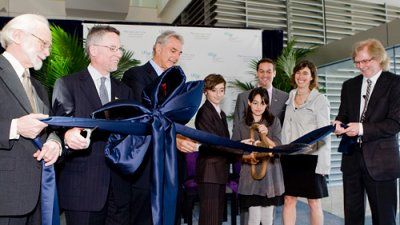UCSF Associate Clinical Professor of Dermatology Kieron Leslie, MD, is co-author of a new journal article on treatment for cryopyrin-associated periodic syndrome, or CAPS, a rare and potentially life-threatening auto-inflammatory disease. The disorder can cause fatigue, fever, and chronic anemia from infancy, with inflammation to the skin, eyes, and bones or joints. Data from the paper “Use of Canakinumab in the Cryopyrin-Associated Periodic Syndrome," appearing in the June 4, 2009 edition of the <i>New England Journal of Medicine</i>, show that patients in a recently completed one-year Phase III clinical trial experienced a benefit within hours of receiving a dose of canakinumab, and only needed further treatment every two months to control their disease. The success of the therapy in blocking inflammation and its related symptoms could lead to investigation of the drug’s potential use for treating gout, rheumatoid arthritis, and type 2 diabetes.


